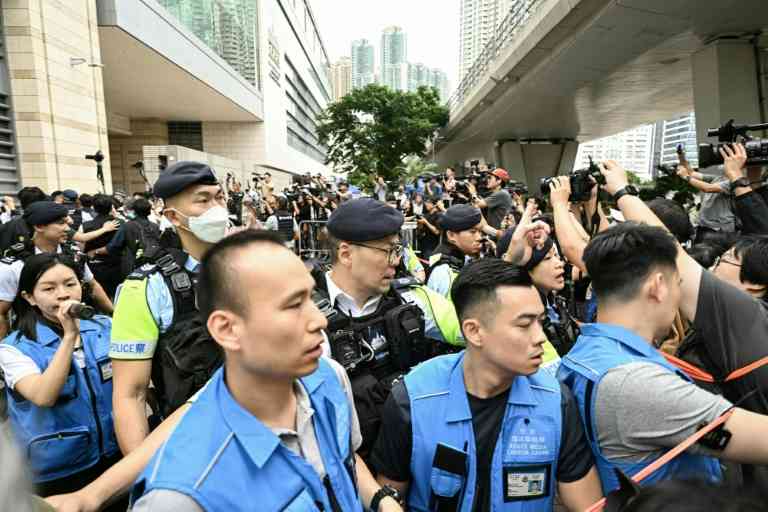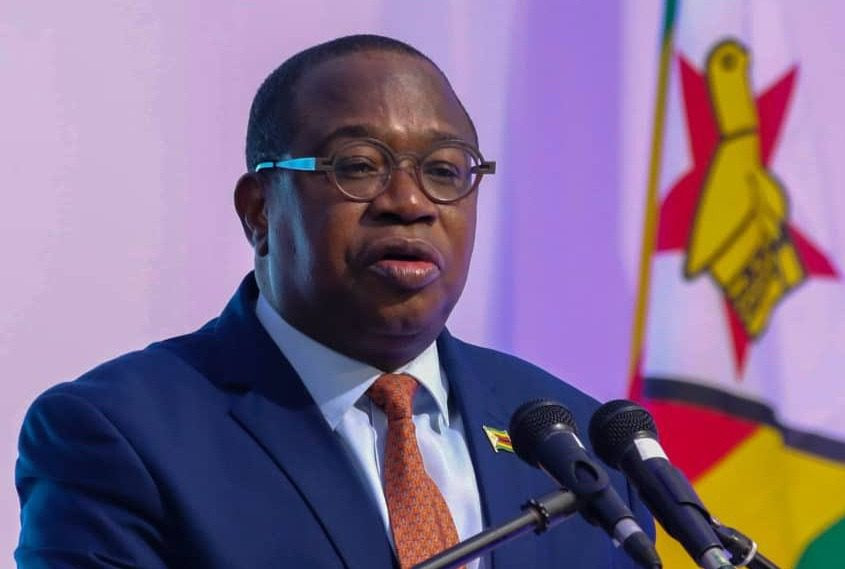
In a move to quash political dissent in the former British colony of Hong Kong, the Chinese authorities have convicted 14 of the most prominent pro-democracy activists in a farcical trial before a Hong Kong court. These activists now face prison sentences, some possibly for as long as life.
“The message from the authorities is clear. Any opposition activism, even of the most moderate kind, will no longer be tolerated,” expert in Hong Kong politics at John Hopkins University Ho-fung Hung has been quoted by the New York Times News Service. The AP has quoted Sarah Brooks of Amnesty International that the mass convictions are “unprecedented” and the “most ruthless illustration yet of how Hong Kong’s National Security Law is being weaponized to silence dissent.”
The history of the case is that on January 6, 2021, the Hong Kong Police arrested 53 pro-democracy politicians on charge of “subversion.” A total of 47 of them were prosecuted. They had helped to organize or ran as candidates in an informal public opinion poll to select pro-democracy candidates for the upcoming Hong Kong Legislative Council election scheduled for September 2020. They had sought to win more than half of the legislative seats to press their demands for more democracy in Hong Kong; a perfectly legitimate aspiration under any democratic set-up. More than 600,000 people in Hong Kong had participated in the opinion poll.
The Hong Kong court has ruled, however, that their plan to effect change through an unofficial primary election would have undermined the government’s authority and created a constitutional crisis. Prosecutors have accused them of attempting to paralyze the Hong Kong government and topple the Chief Executive of Hong Kong by securing the legislative majority necessary to indiscriminately veto budgets. In the public opinion poll, some of the pro-democracy protestors had reportedly suggested the idea of vetoing the budget. Under the Basic Law of Hong Kong, the Chief Executive can dissolve the legislature if a budget cannot be passed. But the Chief Executive, who is also called the Leader of Hong Kong, will himself have to step down if the budget is again vetoed in the newly formed legislature.
Observers have noted the rapid deterioration in judicial independence and the rule of law in Hong Kong since the promulgation of the National Security Law in the island city in the wake of the pro-democracy movement of 2019. The U.S. Congressional Executive Committee on China in a report on May 10, 2023, said the National Security Law had “established a de facto parallel legal system where procedural rights are curbed and substantive rights violated. As participants in this system, judges appointed to handle national security cases contribute to these systematic violations. The United States Government should consider imposing sanctions on judges to counter the erosion of democratic freedoms in Hong Kong.”
Reports from Hong Kong say the three judges who have convicted the 14 activists had been handpicked by the Beijing-appointed Chief Executive of Hong Kong.
Earlier, 31 other defendants had pleaded guilty in the hope of a more lenient sentencing. Two were acquitted. In their campaign, they had not mentioned the plan to veto the budget. Even then, the Hong Kong authorities are not satisfied. The prosecution is planning to appeal against the acquittals. The prosecution have named five defendants as “major organizers” who are likely to face harsh sentences; and end their lives in prison. Among them are four former lawmakers.
Being the biggest national security case under the National Security Law of Hong Kong promulgated in 2020, the trial had evoked immense international attention. Diplomats from the United States, Australia and Britain, along with dozens of residents of Hong Kong, had waited outside the court building guarded by the police to secure seats to hear the verdict. As the court proceedings revealed, however, the authorities in Hong Kong have scant respect for international opinion.
- Arbitration insights: Various shades of international commercial arbitration
- Arbitration insights: Various shades of international commercial arbitration
- I hope COVID-19 does not frustrate 2022 festivities
- Macao eases COVID mask mandate as virus situation stabilizes
Keep Reading
Different foreign governments have condemned the way the 14 pro-democracy activists have been convicted by the Hong Kong court. The European Union Foreign Affairs Office has said that the conviction “marks a further deterioration of fundamental freedoms and democratic participation in Hong Kong.” The defendants “are being penalized for peaceful political activity that should be legitimate in any political system that respects basic democratic principles.” The case calls into question Hong Kong’s commitment to openness and pluralism, the cornerstones of the city’s attractiveness as an international commercial and financial centre, the EU Foreign Office has said.
Foreign Minister of Australia Penny Wong has said that Australia is deeply concerned by the verdicts, including the verdict for Australian citizen Gordon Ng. “We have consistently expressed strong objections to China on the systemic erosion of Hong Kong’s rights and freedoms, and we will continue to do so,” she has said in a post on X.
The United States has expressed its “deep concern” about the conviction of 14 pro-democracy activists in Hong Kong and has said that Washington is taking steps to impose new visa restrictions on mainland Chinese and Hong Kong officials responsible for the imposition of the sweeping National Security Law. “The defendants were subjected to a politically motivated prosecution and jailed simply for peacefully participating in political activities protected under the Basic Law of Hong Kong,” U. S. State Department spokesman Matthew Miller has said in a statement, calling for the release of the detained activists. The United Kingdom has made a similar appeal.
Human Rights Watch has pointed out that many aspects of the detention and trial proceedings in this case have violated the due process of law as recognized under international standards; among them pre-trial detention and the denial of a jury trial. The definition of subversion and other crimes under the National Security Law are too broad and arbitrarily applied. Even the peaceful exercise of fundamental human rights that are enshrined under the International Covenant on Civil and Political Rights and the Basic Law of Hong Kong that came into effect on July 1, 1997, when Hong Kong was transferred from the British Crown to Chinese rule, has been defined as subversion under the National Security Law.
Since the imposition of the National Security Law, the governments in Beijing and Hong Kong have erased civil liberties in the island city, arrested pro-democracy figures, forced the closure of independent media organizations, labour unions and political parties and changed the electoral rules so that only those loyal to the Chinese Communist Party can contest in a seat in the Hong Kong Legislative Council.







